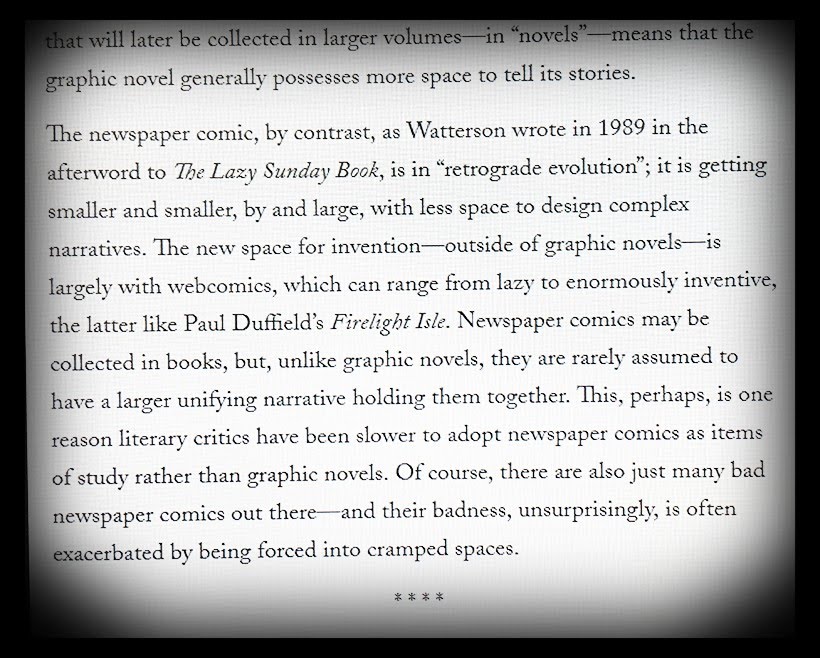o mal-a-eito
problematizando em três
 newspaper comics, webcomics & graphic novels
newspaper comics, webcomics & graphic novels...continuando do resumo de "kgspencer". Por esta altura já podemos problematizar a coisa, obviamente, segue-se o habitual "mas...?":
But Authenticity only makes sense against an interpersonal background of values and significances, so any discourse on self-fulfillment based on shutting out society is self-defeating. In other words, the self-defeating aspect of the culture of authenticity is its insistence on self-fulfillment in opposition to the demands of society, or nature. We need to separate a "good" ideal of personal authenticity from a "bad" one.
in "Charles Taylor’s The Ethics of Authenticity (Chapters 1-5)" 19 jun 2015
E para compreender na sua totalidade a crítica — e resposta encontrada — ao ideal da autenticidade, voltemos ao início. Taylor — porque, como nós, sabe que três é um número mágico ;) — finds three dominant malaises. São elas:
in "Charles Taylor’s The Ethics of Authenticity (Chapters 1-5)" 19 jun 2015
- Rampant individualism: a loss of meaning "the fading of moral horizons" induced by increased individualism. The downside of breaking out of old hierarchies is a loss of meaning. By assigning a place to each thing and person, hierarchical societies made the world meaningful. The "dark side of individualism" is a withdrawal into our own narcissistic pleasures and pains with little regard for others or society.
- The eclipse of ends caused by the rise to dominance of instrumental reason: sweeping away old social orders disenchants the world and leaves everything as a resource to be appropriated for our projects. The fear is that we will use cost-output calculations to measure things that deserve a better standard of evaluation. The importance of instrumental reason also explains the prestige of technology and its increased proliferation into areas of life where it is not optimal.
- A loss of freedom brought about by social fragmentation. An instrumental society "severely restricts our choices," compelling us to make decisions we would normally never make. In addition, we lose freedom by being too self-concerned — a new "soft" despotism that results from a government keeping us content individually without calling for our participation.
Cada uma um capítulo por direito próprio que iremos baralhar nas próximas entradas em nome da brevidade. E de baralhar, saltemos novamente alguns capítulos para adiantar linhas mestras no pensamento traduzido. Outro "mas", portanto.
But Taylor’s view shows the culture “to be full of tension, to be living an ideal that is not fully comprehended, and which properly understood would challenge many of its practices”. It is this gap between theory and practice that provides space in which to reason about the culture of self-fulfillment.
in "The Ethics of Authenticity (Chapters 6-10)" 4 jul 2015
É igualmente esse gap da teoria à prática que nos ocupa: o anti —.
